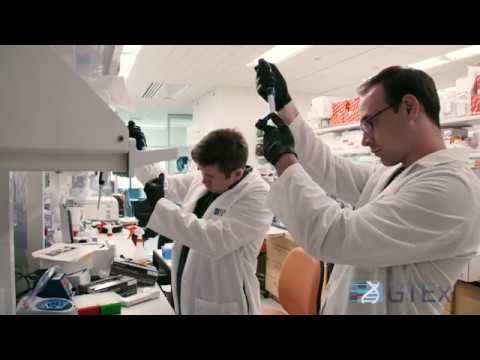Mission
The GTEx project aims to evaluate the relationship between genetic variation and gene expression in non-diseased human tissues to determine how this relationship contributes to disease susceptibility. GTEx is an ongoing effort to create a comprehensive public resource to study tissue-specific gene expression and regulation across multiple tissue types. Samples were collected from up to 53 tissue sites in nearly 1000 deceased donors for molecular analysis. Remaining samples are available from the GTEx Portal. Further detail about the project, including resources available, can be found on the NIH Common Fund website.
Search and Request Biospecimens
There are many GTEx biospecimens that have not been used for research. These biospecimens are stored at the Broad Institute of Harvard and MIT. To search available samples and initiate a request for access to the GTEx biospecimens, please visit the GTEx portal.
NOTE: the GTEx Portal does not work with Internet Explorer; please use Chrome, Firefox, or Safari.
Tissue Image Library
The GTEx Tissue Image Library contains detailed tissue histology images collected from numerous different tissue types from nearly 1000 postmortem donors.
All tissues underwent stringent pathology review for tissue acceptability. Each file contains details including the type of fixative, the degree of autolysis, as well as age range and gender. Additionally, the high resolution of each image allows for detailed viewing including pan and zoom. For your convenience, files can be downloaded as Aperio image files for further analysis. Original GTEx images in Aperio format can be requested for bulk download.
Donor Information
The generosity of donors and donor families make this project possible.
The GTEx Ethical, Legal, and Social Implications Study
As part of the project, GTEx sponsored studies looking at different aspects of the ethical, legal and social implications (ELSI) of GTEx. The ELSI studies included interviews with family decision makers who had been approached to donate their loved one’s tissues. The studies assess the effectiveness of the consent process in informing the donor families of the potential impacts of participating in the study. Community Advisory Boards were also created to get community input into various issues including how GTEx should talk with families about biospecimen donation. For more information on GTEx and GTEx ELSI-related studies, please see publications from the GTEx ELSI investigator, an example of which can be found here.
Donor Demographics
GTEx aimed to study genetics in donors with no evidence of disease. The tissue types collected were chosen based on medical significance, logistical feasibility, and relevance to the scientific goals of the project and usefulness to the research community. Postmortem samples were collected from approximately 1,000 donors with ages ranging from 21 to 70 years, both men and women. Up to 53 different tissues types were procured from each donor.
Additional details include:
- Age of Donors: 21 to 70 years of age with an average of 53.4 years of age.
- Body Mass Index (BMI): 18.5 to 35 with an average of 27.35 for males and 27.34 for females.
- Sex of Donors: 34% female and 66% male.
The Consortium
The GTEx Consortium Analysis Working Group (AWG) performed the statistical analysis and interpretation of the data. The GTEx AWG was open to all academic, government and private sector scientists interested in participating in a collaborative open process to facilitate the comprehensive analysis of genotype, gene expression, and other molecular phenotypes across multiple human tissues.
Publications
Click here to view publications on the GTEx portal.
